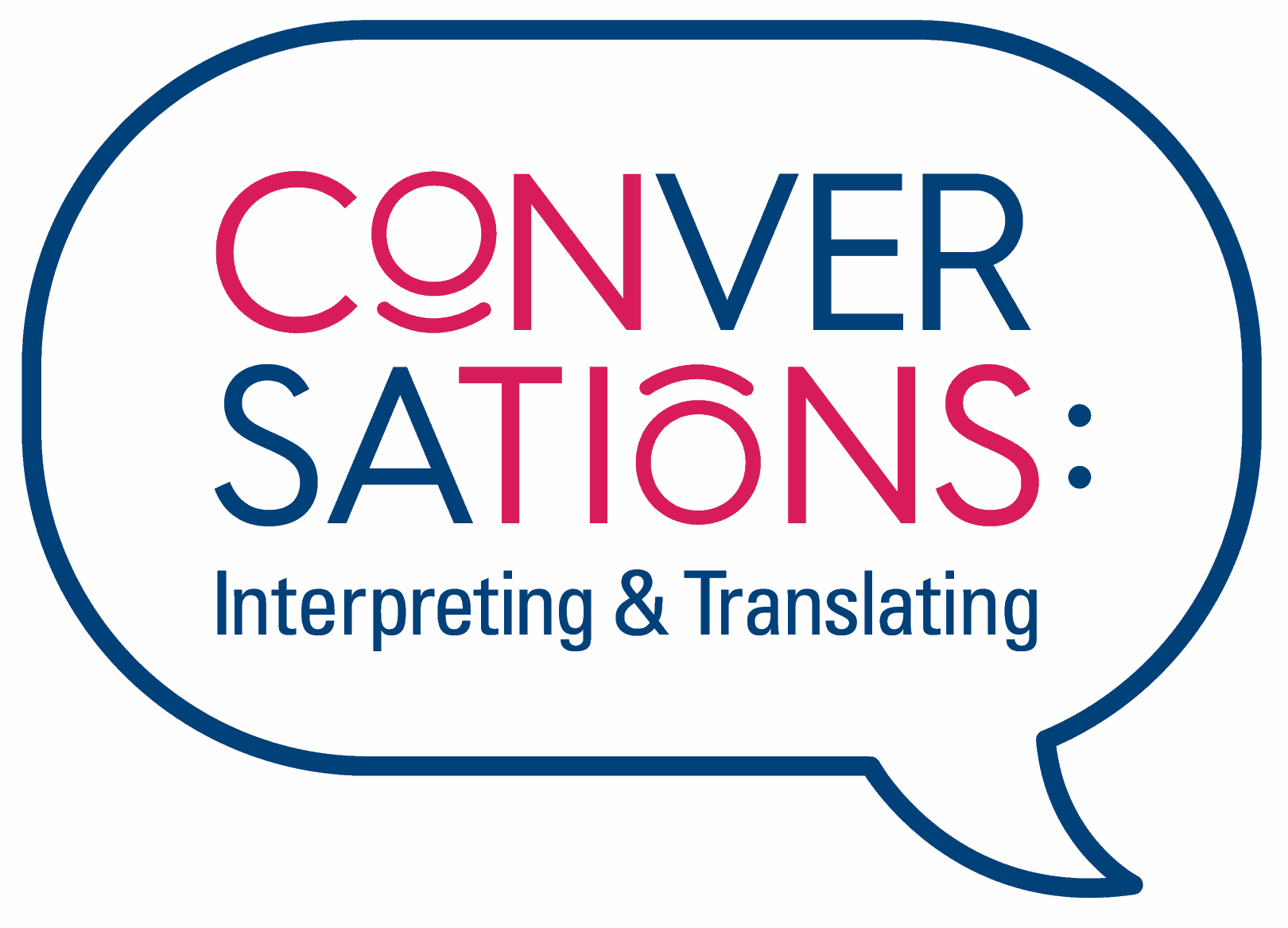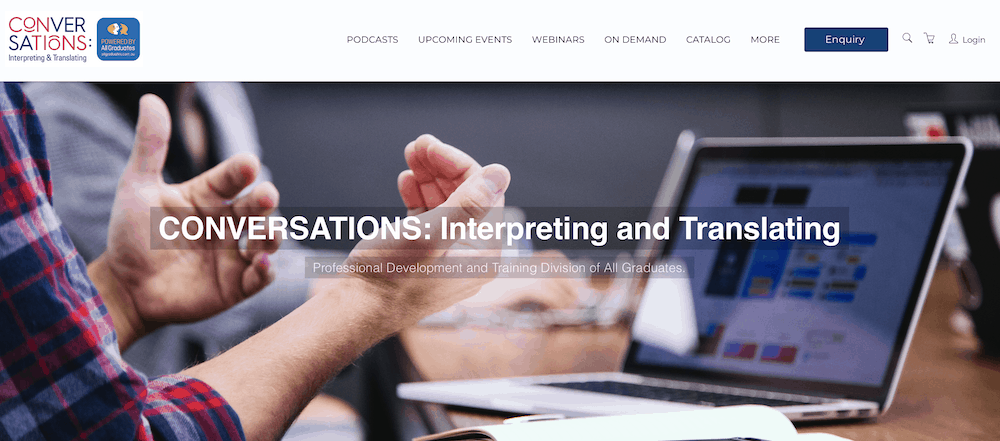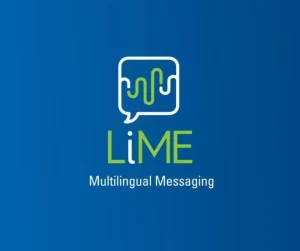
All Graduates | 8 Apr 2019
You’ve likely heard the term CALD used when discussing communities in Australia, but what does it actually mean?
As our society grows increasingly diverse, having a grasp on the term CALD and the people it encompasses becomes more crucial. Though the acronym might seem complex, this guide aims to demystify CALD communities in a comprehensive, easy-to-understand way.
We’ll explore the term’s meaning, examine relevant statistics about these groups, and provide tips for engaging cross-culturally. You’ll gain insight into the tapestry of cultures that make Australia unique.
Whether you interact with CALD communities professionally or simply want to expand your awareness, this guide will unpack all you need to know about our diverse national mosaic.
Equipped with knowledge, you can help build a more inclusive society.
Request A Quote Now
What Is CALD? Defining Culturally and Linguistically Diverse Communities
CALD stands for culturally and linguistically diverse. CALD communities refer to groups of people in Australia who come from a non-Anglo cultural and linguistic background.
According to the Australian Bureau of Statistics, nearly half of Australians today come from a CALD background.
A Growing and Vibrant Part of Australian Society
CALD communities contribute greatly to the social, cultural, and economic fabric of Australian society. Studies show that CALD migrants have higher rates of entrepreneurship and business ownership. Their culinary traditions and festivals also enrich Australia’s cultural landscape. However, misconceptions and stereotypes about CALD groups persist.
Challenges Facing CALD Communities
CALD communities often face difficulties accessing services and opportunities. Language barriers, lack of recognition of overseas qualifications, and cultural misunderstandings can disadvantage CALD individuals.
Racism and discrimination also remain problems, with nearly one-fifth of CALD Australians reporting unfair treatment due to their cultural background.
Promoting Inclusion and Access
To promote inclusion, government and community organisations should provide interpreter services and translated materials. Culturally sensitive training for staff can help address barriers to access. Anti-racism campaigns and events celebrating cultural diversity foster understanding and bring communities together.
With nearly half of Australians from CALD backgrounds, embracing diversity and empowering CALD communities is crucial to Australia’s future.
By promoting inclusion, access, and understanding, Australia can tap into the many benefits of its cultural diversity. The term ‘CALD’ itself, however, is debated, with some arguing it groups communities and implies a single ‘mainstream’ Australian culture. A more inclusive term may be ‘cultural diversity’.
Regardless of the term used, valuing and empowering people of all cultures is vital.
The Growing Prevalence of CALD Groups in Australia
 Australia has always been a culturally diverse country, but the cultural and linguistic diversity (CALD) of its population has grown substantially in recent decades through increased migration.
Australia has always been a culturally diverse country, but the cultural and linguistic diversity (CALD) of its population has grown substantially in recent decades through increased migration.
According to the Australian Bureau of Statistics, nearly half (49%) of Australians were born overseas or have at least one parent born overseas. This increasing diversity brings many benefits but also introduces challenges in effectively serving these communities.
A Diverse Range of Languages and Cultures
Australia is home to over 300 languages and hundreds of distinct cultures. The most widely spoken languages after English are Mandarin, Italian, Vietnamese, Greek, and Filipino. These communities have unique cultural practices, values, and needs that must be considered to provide inclusive support.
For example, some groups face higher risks of family violence, mental health issues or chronic health conditions. Tailored programs and translated resources are needed to address these concerns with sensitivity.
Uneven Geographic Distribution
CALD groups are not evenly distributed across Australia. Certain areas like Western Sydney have extremely high concentrations of migrants and refugees, with some local government areas having over 70% of residents from non-English speaking backgrounds.
Service providers in these areas face greater demands to offer language services and culturally competent care. They require more funding and support to meet these needs adequately.
An Ageing CALD Population
Australia’s CALD population is also ageing. Migrants who arrived decades ago are now reaching older age, but they continue to face language and cultural barriers to accessing aged care and health services.
Demand for interpreters and translated content in European languages like Italian and Greek has grown over 30% in the last five years due to this ageing CALD demographic. This trend highlights the need for long-term, sustainable support for CALD communities as they age in Australia.
With a growing, diversifying and ageing CALD population, Australia must invest in better understanding and supporting these communities. By providing language services, culturally sensitive programs, and tailored resources, we can work towards a more inclusive society that leaves no one behind.
Understanding the Needs and Values of CALD Communities
To effectively serve CALD communities, it is crucial to understand their unique needs and values.
According to a study by the Federation of Ethnic Communities’ Councils of Australia, CALD communities face higher rates of unemployment, poverty, and social isolation compared to the general population.
Addressing Economic Disadvantage
CALD communities often struggle with higher unemployment and poverty due to language barriers, lack of local work experience, and difficulty accessing education. Initiatives aimed at upskilling and job placement can help address these economic disadvantages.
For example, providing free vocational training, career coaching, and internship programs tailored for CALD communities has been shown to significantly improve employment outcomes.
Promoting Social Inclusion
Feeling socially connected and included is vital for well-being across all cultures. However, CALD communities frequently experience social isolation due to language and cultural barriers, as well as discrimination.
Community centers that offer social programs, events, and spaces for people to connect across cultures are invaluable for promoting inclusion and cohesion.
Respecting Cultural Values
CALD communities hold a diversity of cultural values, beliefs, and practices that should be respected.
Service providers must avoid making assumptions and work to understand the specific cultural values of the communities they serve. For example, some cultures place greater emphasis on collective well-being over individualism or value traditional healing practices alongside Western medicine.
Culturally sensitive programs and policies help to honor diversity and build trust within CALD communities.
To serve Australia’s multicultural population effectively, understanding CALD communities’ unique needs around economic security, social inclusion, and cultural values is key. With compassion and the will to understand diversity, we can build a more equitable, cohesive society that provides opportunity for all.
Effective Communication Strategies for Working With CALD
Know Your Audience
The first step to effective communication with CALD communities is understanding your target audience.
Do research on the cultural groups you aim to reach, including their languages, values, and communication preferences. For example, some cultures prefer direct communication, while others are more indirect. Understanding these nuances will help you craft messages that resonate.
Provide Translated Content
Offering information in a community’s preferred languages is key.
According to a 2020 study, over 20% of Australians speak a language other than English at home. Translating content into common languages like Mandarin, Arabic, and Vietnamese allows you to reach more people and build trust.
Work with a professional translation service to ensure accuracy.
Use Visuals
Visuals are a simple way to make information more accessible across languages and cultures. Videos, images, infographics, and interactive media can enhance understanding when used alongside translated text.
A UK study found people remember 65% of visual information after three days, versus only 10% of text. Visuals also spark interest and share concepts that transcend words.
Partner With Community Groups
Collaborating with local community groups and leaders is an effective way to spread your message. These partners can help translate, distribute, and promote your content while lending their credibility.
They have established trust and understand the nuances of the communities they serve. Partnerships also show your genuine interest in the groups you want to reach.
Provide Cultural Awareness Training
 For organizations working with CALD communities, cultural awareness training is essential. Educating staff about the cultural values, traditions, and communication styles of your target audiences will help them interact respectfully and avoid misunderstandings. It also makes services and information more accessible and inclusive. CALD customers will appreciate your efforts to understand them.
For organizations working with CALD communities, cultural awareness training is essential. Educating staff about the cultural values, traditions, and communication styles of your target audiences will help them interact respectfully and avoid misunderstandings. It also makes services and information more accessible and inclusive. CALD customers will appreciate your efforts to understand them.
With some preparation and the right tools, communicating across cultures can be deeply rewarding. Applying these strategies will allow you to connect with your CALD audiences in meaningful ways.
Most importantly, approach your work with patience, empathy, and a willingness to learn.
Building Inclusion and Engagement With CALD Groups
To effectively build inclusion and engagement with CALD communities, organisations must commit to understanding them. According to a 2020 report by the Federation of Ethnic Communities’ Councils of Australia (FECCA), over 49% of Australians were born overseas or have a parent who was.
Research the cultural values and norms of your target groups.
Understand how different cultures communicate and engage to tailor your outreach. For example, some collectivist cultures prefer face-to-face engagement, while individualist cultures may respond better to digital campaigns. Survey your audience to determine the channels and messaging they prefer.
Provide translated materials and interpreters.
Ensure all communications are available in the languages your audiences speak, including on your website and social media. According to the 2016 census, over 20% of Australians speak a language other than English at home. Partnering with a language services agency can help you translate content and provide professional interpreters to assist non-English speakers.
Engage cultural leaders and community groups.
Collaborating with cultural leaders and community groups is key to building trust and sharing your message. They can advise on appropriate outreach strategies and help promote your initiatives to their members.
Acknowledge and celebrate cultural diversity.
Promoting an inclusive culture where diversity is valued and celebrated will make CALD groups feel welcomed and engaged. Share information on cultural holidays and history, provide opportunities to showcase cultural traditions, and support community-led initiatives.
Review and improve regularly.
Continuously review how well your strategies are engaging CALD communities and make improvements. Survey audiences, monitor metrics like open and click-through rates for translated content, and track participation at events. Look for gaps and revise your approach to better meet the needs of all your audiences.
With a well-researched, culturally-sensitive strategy, organisations can overcome barriers to effectively engage and build inclusion with their CALD stakeholders. But achieving this requires an ongoing commitment to understanding, listening and improving to serve Australia’s diverse multicultural communities.
Request A Quote Now
Key Insights From Research on CALD Communities in Australia
Studies show that CALD communities in Australia continue to face challenges in accessing essential services.
According to the Australian Bureau of Statistics, nearly half of Australians from non-English speaking backgrounds report difficulties communicating with healthcare providers, while over 60% say they have trouble understanding government communications.
Healthcare Access
Researchers found that language barriers, lack of cultural sensitivity, and discrimination were major obstacles preventing CALD individuals from accessing healthcare.
A study in the Australian and New Zealand Journal of Public Health found that patients with limited English proficiency were less likely to visit doctors, access preventative care, and follow medical advice. Healthcare providers must provide professional interpreters and train staff in cultural competency to address these inequities.
Economic Disadvantage
Statistics reveal that CALD communities experience higher rates of unemployment and poverty in Australia.
The unemployment rate for people born in non-English speaking countries was 6.2% in 2019, compared to 4.2% for those born in Australia or other English-speaking countries, according to the ABS. CALD women face even greater challenges, with an unemployment rate of 7.7%.
Targeted programs are needed to improve job opportunities and financial security for CALD groups.
Social Exclusion
Some CALD communities report feeling socially isolated or excluded in Australia.
A study by the Australian Multicultural Foundation found that newly arrived migrants can struggle to build social connections outside of their ethnic communities. Local governments and community organizations should create more opportunities for cultural exchange and interaction between CALD groups and the broader Australian population.
In summary, research has identified language difficulties, lack of cultural sensitivity, discrimination, economic disadvantage, and social isolation as major issues affecting CALD communities in Australia.
By implementing targeted programs and policies, Australia can work to overcome these barriers and provide equal opportunities for people from culturally and linguistically diverse backgrounds.
Resources and Support for CALD Individuals and Organizations
Government Funding and Grants
The Australian government provides funding and grants for CALD organisations and initiatives.
This includes the Grant for Community Projects scheme which provides small grants of up to $5,000 for community projects promoting social inclusion and community participation of migrants and refugees. Larger grants are also available through the Building Multicultural Communities program.
These grants support projects that promote community harmony, address issues of racism, and strengthen social cohesion.
Advocacy and Representative Groups
 Many advocacy and representative groups can offer support for CALD individuals and communities.
Many advocacy and representative groups can offer support for CALD individuals and communities.
Groups like the Federation of Ethnic Communities’ Councils of Australia (FECCA) advocate on behalf of multicultural communities and work to promote inclusion, harmony, and justice. FECCA has member organizations in each state and territory representing various cultural groups.
These organizations can connect individuals to local resources and support services.
Translation and Interpreting Services
Lack of English proficiency should not be a barrier to accessing services and resources. Free or low-cost translating and interpreting services are available to CALD individuals through organizations like All Graduates Interpreting and Translating. All Graduates provides immediate phone interpreting in over 160 languages as well as pre-booked on-site interpreting for medical appointments, business meetings, court appearances, and more.
Non-government organizations like the Ethnic Communities Council of Victoria also offer translation and interpreting services to facilitate access to government and community services. These services help break down language barriers and promote social inclusion in CALD communities.
With the increase in humanitarian arrivals and migrant numbers in Australia, resources and support for culturally and linguistically diverse groups are more important than ever. Government funding, advocacy organizations, and translating services all work to empower CALD individuals and promote community participation.
By connecting people with these resources, we can build a more just, inclusive, and harmonious society.
LiME: A Revolutionary Multilingual Messaging System for CALD Population
 LiME is an innovative multilingual messaging system developed by All Graduates Interpreting and Translating to facilitate communication across Culturally and Linguistically Diverse (CALD) communities.
LiME is an innovative multilingual messaging system developed by All Graduates Interpreting and Translating to facilitate communication across Culturally and Linguistically Diverse (CALD) communities.
According to a 2019 study, over 21% of Australians speak a language other than English at home. However, most mainstream messaging apps only support major languages, creating barriers for those from CALD backgrounds.
LiME leverages state-of-the-art technology and real humans to provide real-time translation for over 100 languages, allowing users to communicate across language barriers.
LiME offers compelling benefits for both individuals and organisations that serve CALD groups. For individuals, LiME enables communication with friends and family across the world, regardless of native language.
For community organizations and businesses, LiME can be used to disseminate critical information and engage with linguistically diverse clients or patients.
Some of the benefits of LiME are reducing language barriers, improving communication, and saving time.
LiME works by first selecting the languages you need. You can then upload your content, which can be in the form of a document, brochure, or recording. Once you upload your content, LiME will translate it and verify it for accuracy. Finally, you can log in to your dashboard and use your translated audio.
LiME is easy to use and affordable. It is also cloud-based, so you can access your translated content from anywhere.
LiME is revolutionizing communication for CALD groups and empowering meaningful connections across language barriers.
Overall, LiME demonstrates how technology can be leveraged to uplift and include traditionally underserved populations.
Real-World Examples of Successful CALD Community Initiatives
Several impactful CALD community programs have been implemented in Australia. One example is the Community Hubs program by the NSW Government, which provides funding and support for local community groups to establish ‘hubs’ where people from CALD backgrounds can connect.
These hubs offer services like English classes, job readiness training, and social activities. An evaluation found the hubs are helping new migrants settle in and participate fully in community life.
Another successful initiative is the Australian Multicultural Community Services’ ‘My Language’ program. This free interpreting service helps CALD individuals access essential services by providing on-demand phone interpreting in over 100 languages. Studies show enabling communication in one’s native language leads to improved health literacy and outcomes.
The ‘My Language’ program has allowed thousands of CALD Australians to overcome language barriers when engaging with healthcare providers and government agencies.
When organisations make an effort to understand the diverse needs of CALD communities and implement tailored programs and services to address them, the impacts can be profoundly positive.
The real-world examples highlighted here demonstrate how breaking down barriers to participation and empowering CALD groups leads to a more just, inclusive, and harmonious society overall. By investing in CALD communities, we are investing in Australia’s future.
FAQs About CALD: Your Top Questions Answered
As Australia’s cultural diversity increases, CALD communities are becoming more prominent. However, many Australians still have questions about these groups. Here are answers to some of the most frequently asked questions about Culturally and Linguistically Diverse (CALD) communities.
What does CALD mean?
CALD is an acronym for Culturally and Linguistically Diverse. It refers to groups and individuals in Australia who have a cultural heritage different than the Anglo-Celtic majority. This includes immigrants, refugees, and indigenous groups. According to the Australian Bureau of Statistics, nearly half of Australians today have at least one parent born overseas.
Why is it important to understand CALD communities?
Australia is a multicultural society, so understanding different cultures and languages is vital. Reaching and engaging with CALD groups is also crucial for businesses, government organizations, and community groups. Failing to understand CALD communities can lead to social and economic exclusion.
What challenges do CALD communities face?
CALD groups often face difficulties like language barriers, lack of recognition of foreign qualifications, unfamiliarity with Australian systems, discrimination, and lack of culturally appropriate services. For example, a study found that job candidates with Anglo names were twice as likely to be called for an interview compared to candidates with Middle Eastern names who had the same qualifications.
What can be done to support CALD communities?
There are many ways to support CALD groups. Improving language services, providing interpreter and translation support, recognizing foreign qualifications, and educating people about different cultures can help. Governments and organizations should also make sure their information and services meet the needs of CALD communities. Individuals can support CALD groups by learning about different cultures, challenging stereotypes, and advocating for inclusive policies.
With increasing diversity, CALD communities are an integral part of Australian society. By understanding them better and providing adequate support, Australia can help CALD groups overcome challenges and ensure everyone can participate fully in social and economic life.
With increasing diversity, CALD communities are an integral part of Australian society. By understanding them better and providing adequate support, Australia can help CALD groups overcome challenges and ensure everyone can participate fully in social and economic life.
We all have more in common than what divides us.
You now have the tools to build meaningful connections with CALD communities. By understanding diverse cultures and values, speaking inclusively, and adjusting policies and procedures, your organization can become a leader in embracing diversity.
We all have more in common than divides us.
When we open our hearts and minds to those from different backgrounds, we enrich our lives and strengthen society. The future depends on ordinary people daring to cross divides. Will you have the courage to take the first step? Our shared humanity is counting on it.
Bridge the language gap with confidence.
Building bridges of understanding across cultures starts with effective communication. All Graduates Interpreting & Translating, Australia’s premier interpreting and translating service, empowers CALD communities to thrive.
All Graduates’ team of qualified and culturally-attuned professionals ensure seamless communication, fostering trust and collaboration within CALD communities. Whether you need flawless document translation, expert conference interpreting, or specialized services, we deliver exceptional results, every time.
All Graduates Interpreting & Translating shatters language barriers, creating a more inclusive and successful Australia for everyone.
Request A Quote Now













